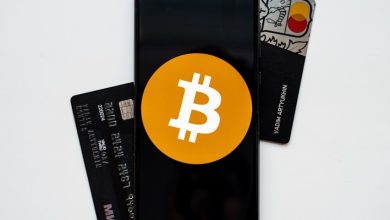Evaluating the Risks of Decentralized Finance Platforms

- Understanding the concept of decentralized finance
- Benefits of using decentralized finance platforms
- Potential risks associated with decentralized finance platforms
- Security vulnerabilities in decentralized finance platforms
- Regulatory challenges facing decentralized finance platforms
- Tips for mitigating risks when using decentralized finance platforms
Understanding the concept of decentralized finance
Decentralized finance, often referred to as DeFi, is a concept that aims to transform traditional financial systems by removing intermediaries and enabling peer-to-peer transactions. In a decentralized finance ecosystem, financial services such as borrowing, lending, and trading can be conducted without the need for traditional financial institutions like banks or brokerage firms. This is made possible through the use of blockchain technology, smart contracts, and decentralized applications (dApps).
One of the key principles of decentralized finance is the concept of democratization, which seeks to provide equal access to financial services for individuals around the world. By leveraging blockchain technology, DeFi platforms can offer transparency, security, and censorship resistance. This means that users have more control over their funds and can participate in financial activities without relying on centralized authorities.
Decentralized finance platforms are built on blockchain networks such as Ethereum, which enable developers to create smart contracts that automatically execute transactions when certain conditions are met. These smart contracts act as self-executing agreements between users, eliminating the need for intermediaries to facilitate transactions. However, it is important to note that smart contracts are not infallible and can be vulnerable to bugs or security exploits.
As the DeFi space continues to evolve, it is crucial for users to understand the risks associated with decentralized finance platforms. While DeFi offers numerous benefits such as increased financial inclusion and interoperability, it also comes with its own set of challenges. Users should be aware of potential risks such as smart contract vulnerabilities, hacking attacks, and regulatory uncertainties. By educating themselves on the concept of decentralized finance and practicing good security measures, users can mitigate these risks and participate safely in the DeFi ecosystem.
Benefits of using decentralized finance platforms
Decentralized finance platforms offer a plethora of benefits for users looking to engage in financial activities in a more transparent and efficient manner. These platforms provide a wide range of opportunities for individuals to access financial services without the need for traditional intermediaries such as banks or financial institutions.
One of the key benefits of using decentralized finance platforms is the increased level of control that users have over their assets. By utilizing smart contracts and blockchain technology, users can securely manage their funds without relying on a third party to facilitate transactions. This level of autonomy can help to reduce the risks associated with centralized platforms, such as the potential for fraud or mismanagement of funds.
Another advantage of decentralized finance platforms is the ability to access a wider range of financial products and services. These platforms often offer a variety of options for users to invest, borrow, or trade assets, providing greater flexibility and diversity in financial activities. Additionally, decentralized finance platforms can often offer lower fees and faster transaction speeds compared to traditional financial services, making them an attractive option for users looking to optimize their financial activities.
Furthermore, decentralized finance platforms promote financial inclusion by allowing individuals from around the world to access financial services without the need for a traditional bank account. This can be particularly beneficial for individuals in underserved or unbanked regions who may not have access to traditional financial services. By utilizing decentralized finance platforms, users can participate in global financial markets and take advantage of new opportunities for wealth creation.
In conclusion, decentralized finance platforms offer a wide range of benefits for users looking to engage in financial activities in a more transparent and efficient manner. From increased control over assets to access to a wider range of financial products, these platforms can provide users with the tools they need to optimize their financial activities and achieve their financial goals.
Potential risks associated with decentralized finance platforms
When it comes to decentralized finance platforms, there are several potential risks that users should be aware of. These risks can impact not only the users’ investments but also the overall stability of the platform. It is important to understand these risks before getting involved in decentralized finance to make informed decisions.
- Smart contract vulnerabilities: Decentralized finance platforms operate using smart contracts, which are lines of code that execute automatically when certain conditions are met. However, these smart contracts are not immune to bugs or vulnerabilities, which can be exploited by malicious actors to steal funds or disrupt the platform.
- Market volatility: The decentralized nature of these platforms means that they are often subject to high levels of market volatility. Prices can fluctuate rapidly, leading to significant gains or losses for investors. It is important to be prepared for this volatility and only invest what you can afford to lose.
- Lack of regulation: Decentralized finance platforms are not subject to the same regulatory oversight as traditional financial institutions. This lack of regulation can make it difficult to hold bad actors accountable and can leave users vulnerable to scams or fraudulent activities.
- Security risks: Because decentralized finance platforms operate on blockchain technology, they are susceptible to security breaches. Hacks or cyberattacks can result in the loss of funds or sensitive information, putting users at risk.
Overall, while decentralized finance platforms offer exciting opportunities for innovation and financial freedom, it is important to approach them with caution. By understanding and mitigating these potential risks, users can make the most of decentralized finance while protecting themselves and their investments.
Security vulnerabilities in decentralized finance platforms
Security vulnerabilities in decentralized finance (DeFi) platforms can pose significant risks to users and their funds. While DeFi platforms offer exciting opportunities for financial innovation and growth, they also come with inherent risks that users should be aware of.
One common vulnerability in DeFi platforms is smart contract bugs. Smart contracts are self-executing contracts with the terms of the agreement between buyer and seller directly written into code. If there are bugs in the code, hackers can exploit them to steal funds or manipulate the platform in their favor.
Another vulnerability is the risk of flash loan attacks. Flash loans allow users to borrow funds without collateral as long as the loan is repaid within the same transaction. However, malicious actors can use flash loans to manipulate prices on decentralized exchanges, leading to significant losses for other users.
Furthermore, decentralized finance platforms are also susceptible to oracle manipulation. Oracles are third-party services that provide external data to smart contracts. If an oracle is compromised or manipulated, it can provide incorrect data to smart contracts, leading to inaccurate outcomes and potential financial losses.
To mitigate these risks, users should conduct thorough research before investing in any DeFi platform. They should also diversify their investments across multiple platforms and use reputable wallets and security tools to protect their funds. By staying informed and proactive, users can navigate the risks of DeFi platforms and take advantage of the opportunities they offer.
Regulatory challenges facing decentralized finance platforms
One of the main challenges facing decentralized finance platforms is the regulatory uncertainty that surrounds them. As these platforms operate outside of traditional financial systems, they often fall into a gray area when it comes to compliance with existing regulations. This lack of clarity can make it difficult for decentralized finance platforms to navigate the legal landscape and ensure they are operating within the bounds of the law.
Regulators around the world are starting to take notice of decentralized finance platforms and are beginning to explore ways to regulate them. However, the decentralized nature of these platforms can make it challenging for regulators to enforce compliance. This can lead to a lack of consumer protection and potential risks for users who may not be fully aware of the regulatory environment in which they are operating.
In some cases, decentralized finance platforms may be subject to regulations that were not designed with them in mind. This can create additional challenges for these platforms as they try to comply with laws that were not intended to govern their operations. As a result, decentralized finance platforms may face increased scrutiny from regulators and potential legal challenges as they seek to establish themselves in the financial ecosystem.
Overall, the regulatory challenges facing decentralized finance platforms are complex and evolving. As regulators continue to grapple with how to oversee these platforms, it is important for decentralized finance projects to stay informed of regulatory developments and work proactively to address any compliance issues that may arise. By taking a proactive approach to regulatory compliance, decentralized finance platforms can help mitigate risks and build trust with users and regulators alike.
Tips for mitigating risks when using decentralized finance platforms
When utilizing decentralized finance platforms, it is crucial to be aware of the potential risks involved. To mitigate these risks and protect your investments, consider the following tips:
1. **Diversify your investments**: Avoid putting all your funds into a single decentralized finance platform. Spread your investments across multiple platforms to reduce the impact of any potential losses.
2. **Do thorough research**: Before committing any funds, take the time to research the decentralized finance platform you are considering. Look into the team behind the project, the technology they are using, and any past security incidents.
3. **Use reputable platforms**: Stick to well-known and reputable decentralized finance platforms that have a proven track record of security and reliability. Avoid platforms with a history of hacks or security breaches.
4. **Keep your private keys secure**: Your private keys are the only way to access your funds on decentralized finance platforms. Keep them safe and never share them with anyone. Consider using hardware wallets for an extra layer of security.
5. **Stay informed**: Keep yourself updated on the latest developments in the decentralized finance space. Follow news outlets, forums, and social media channels to stay informed about any potential risks or security vulnerabilities.
By following these tips, you can help mitigate the risks associated with decentralized finance platforms and protect your investments from potential threats. Remember to always exercise caution and do your due diligence before investing in any platform.



